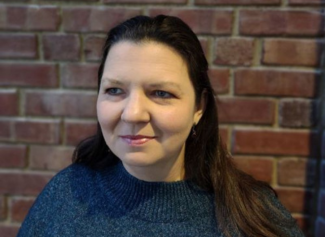
Although COPD is a progressive, long-term disease that cannot be cured, with proper management, patients can live full and happy lives.
My grandfather died of what we now know to be chronic obstructive pulmonary disease (COPD), although his diagnosis was emphysema and related lung health issues. He grew up on a farm in rural Manitoba and was exposed to different chemicals and second-hand smoke. COPD damages the lungs and causes them to become swollen or partly blocked. When I was asked to work with Lung Saskatchewan and the Saskatchewan Health Authority on the qualitative aspect of a research study titled ‘Care Pathways Analytics: Integrating patient-centered outcomes in economic evaluations of care pathways in Saskatchewan’, I felt a personal connection.
Although COPD is a progressive, long-term disease that cannot be cured, with proper management, patients can live full and happy lives.
“Support for COPD patients and caregivers is essential. This covers accurate diagnosis, treatment, maintenance, and rehabilitation. The more you learn about your disease and how you and your caregivers can deal with it the more empowered the patient will be.” ~ LaVerne Miller, COPD patient participant
COPD Care in Saskatchewan
In Saskatchewan, over 64,000 people have COPD, however many people do not know much about the disease or its progression. A lot of patients and caregivers feel alone on their journey and many are not aware of the resources and supports available to help them manage their COPD. This 3-year study funded by Saskatchewan Health Research Foundation and led by Dr. J. Paul Kuwornu aims to improve the economic costs related to this disease and improve the quality of life for people living with COPD.
Within this study, we are discussing the needs of people living with COPD with healthcare providers, patients, as well as family and friends of people living with COPD. This project is highlighting the support and care available and the support and care needed for COPD patients. We have heard firsthand experiences of what it is like to live with COPD in Saskatchewan. The next phase of the study is to collate information in a way that is useful to share with healthcare and related organizations so that they can improve the care they provide to best help people who live with COPD.
Why This Matters
COPD is the most expensive chronic disease for our healthcare system. It accounts for the highest hospital admission rates among chronic disease and the most frequent cause of ambulatory care that leads to hospital admissions that is preventable. Between 2016-2017, the healthcare system cost was $753.3 million in Canada. This figure does not include other out of pocket expenses patients had that were not covered. The medication and support resources are costly and without financial support, these can be a huge burden on patients and their families. Our healthcare system is overstretched and cannot cater to people’s individual needs. We need more preventative measures in place for COPD patients to help manage their flare-ups instead of people getting to the point where they have to be admitted to the hospital.
What other ways can we support patients because we know our healthcare system cannot do it all? This is where organizations like Lung Saskatchewan come in. It is important that COPD patients are supported so they can live their best lives. Because COPD is sometimes caused by smoking, many people feel a sense of shame and stigma about having this disease. I have met patients who have not told their friends and families they have COPD and are struggling alone in secret. We have heard stories of patients not using their oxygen when other people were around so they could conceal their COPD diagnosis or not leaving their homes to go to activities they really wanted to do. This is heartbreaking. There should never be any shame associated with lung diseases.
Support For Patients and Caregivers
People want community; they want to have people to talk to and want the stigma to end. The need for community was evident from the interactions that we observed in the focus group discussions we had for the research study. People exchanged numbers and made plans to keep in touch, which is not common in research studies. Some patients said they found it cathartic to be able to share their stories. I was inspired by the tenacity of the participants in the focus group discussions. The drive of people who live with COPD and who love people with COPD to contribute to improving lung health and want to make a difference in their communities and across our province is remarkable!
You Too Can Make a Difference
By supporting Lung Saskatchewan, you are helping COPD patients and families live their best life. As a key partner in the COPD research project, Lung Saskatchewan will ensure that the resources are available for people who need them.
“The resources provided by Lung Saskatchewan, the SHA, and Canadian support groups have been amazing. When you are diagnosed, the support is there, and it is important that the patient and caregiver use these resources. By using these resources, you become educated and develop a relationship with the healthcare teams. Eventually, you learn to deal with your issues and also become a support person for someone new to their diagnosis.”
– LaVerne Miller – COPD patient participant
Thank you for supporting lung health in Saskatchewan!
Sincerely,
Dr. Elizabeth Cooper
Dr. Cooper is an Assistant Professor in Kinesiology and Health Studies at the University of Regina and a research scientist with the Saskatchewan Population Health Evaluation and Research Unit in Saskatchewan. She also holds a Ph.D. in Community Health Sciences and a Master of Arts in Native Studies, both from the University of Manitoba.
The project lead is Dr. J. Paul Kuwornu. He has a Ph.D. in Community Health Sciences and is a biostatistician. He has been working on research related to COPD care in Saskatchewan for over a decade.
